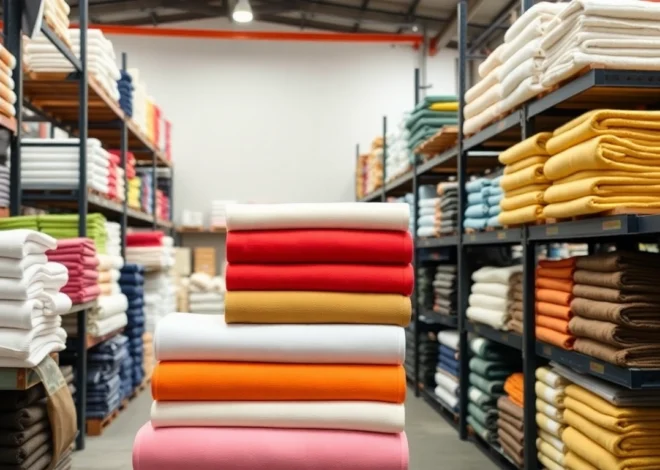Maximize Profit with Top-Quality Towels Wholesale for Retail and Hospitality
Understanding the Towels Wholesale Market
The global demand for high-quality towels has surged, driven by expanding markets in hospitality, health, fitness, and retail sectors. As a result, Towels Wholesale has become a lucrative segment within the textile industry, offering opportunities for manufacturers, distributors, and retailers to meet diverse customer needs efficiently. Understanding current market trends and customer demands is essential for anyone looking to succeed in this competitive landscape.
Current Trends and Customer Demand
Recent industry insights and market analyses reveal a shift toward premium, sustainable, and customized towels. Consumers increasingly prioritize eco-friendly materials like organic cotton, bamboo blends, and recycled fibers, seeking products that combine comfort with environmental responsibility. Additionally, the rise of boutique hotels, luxury spas, and wellness centers has amplified demand for plush, durable, and stylistically versatile towels. Online research indicates a geographical preference for Pakistani towel suppliers due to their reputation for quality and cost-effectiveness, as highlighted by top search results emphasizing manufacturers in Pakistan, such as bulk cotton towel manufacturers.
This evolving preference underscores the importance of supplier offering not only quality but also options for branding, eco-certifications, and customization to stand out. The market also shows a notable trend toward bulk purchasing to leverage economies of scale, reducing overall costs while maintaining high standards.
How to Select the Best Towels Wholesale Provider
Evaluating Product Quality and Material
Quality is the foundation of a successful wholesale towel purchase. The fabric material—be it 100% cotton, bamboo, or blended fibers—directly impacts absorbency, softness, durability, and appearance. Reputable suppliers often provide detailed specifications, including GSM (grams per square meter) ratings, weaving techniques, and finishing processes. For instance, premium towels typically have a GSM of 400-600, ensuring plushness without sacrificing quick drying properties.
To assess quality accurately, request sample products, review certificates of authenticity, and consider third-party testing reports when possible. High-quality towels should exhibit even stitching, consistent color, and a substantial weight relative to their size, indicative of durable fibers and effective manufacturing practices.
Supplier Reliability and Certification
Partnering with a reliable supplier minimizes risks related to delays, inconsistent quality, and compliance issues. Certification standards such as ISO, OEKO-TEX, and BSCI demonstrate adherence to safety, environmental, and labor practices, adding credibility and assurance to your partnerships.
It’s advisable to conduct supplier audits, read client testimonials, and seek references before committing. Long-standing experience in towel manufacturing—like over four decades—often correlates with industry trustworthiness and operational capacity, as exemplified by companies like Bawa Towels, which has a history dating back to 1975.
Pricing Structures and Minimum Order Quantities
Pricing in bulk towel procurement involves considerations of unit cost, shipping, import duties, and potential customization fees. Establishing clear expectations on minimum order quantities (MOQs) helps manage inventory and cash flow efficiently. Most suppliers offer tiered pricing models—larger orders tend to lower the unit price significantly.
Negotiating flexible MOQs is especially critical for startups or small-scale retailers. Transparent pricing structures facilitated by comprehensive quotes and clear terms ensure profitability and smooth supply chain operations.
Types of Towels Available in Wholesale
Bath Towels and Hotel Linen
Bath towels are a staple in both residential and commercial settings. Wholesale suppliers provide a broad range of sizes—from standard bath towels to larger bath sheets—crafted for durability and comfort. Hotel-grade linens commonly feature premium combed cotton, high GSM, and colorfast dyes to withstand frequent washing cycles. The ability to customize these towels with branding logos enhances their appeal for hospitality businesses aiming to create a memorable guest experience.
Beach and Spa Towels
Beach towels are characterized by vibrant designs, larger sizes, and robust weights, often 400-600 GSM. Spa towels prioritize softness, quick absorption, and aesthetic appeal. Wholesale suppliers offer options in terry cloth, velour, and microfibers, catering to diverse retail and spa needs. Customized patterns, branding, and tie-dye options are popular for differentiating products in competitive markets.
Kitchen and Hand Towels for Retail
Kitchen and hand towels serve both functional and decorative purposes. They are typically smaller, made from absorbent terry or plain-weave cotton. Wholesale options include a variety of colors, patterns, and customized embroidery or screen printing for retail branding. Moreover, eco-conscious consumers appreciate reusable, lint-free towels, prompting suppliers to innovate with bamboo or recycled fibers.
Implementation Strategies for Retailers and Distributors
Bulk Purchasing and Inventory Planning
Strategic bulk purchasing allows businesses to benefit from competitive per-unit prices while maintaining sufficient inventory to meet demand. Proper inventory planning involves analyzing seasonal demand patterns, sales trends, and lead times from suppliers. Establishing reorder points ensures stock availability during peak seasons, such as holiday periods or hotel check-in surges.
Branding and Customization Options
Customizing towels enhances brand recognition and customer loyalty. Options include adding embroidered logos, dye sublimation patterns, woven labels, or special packaging. Collaborating with suppliers experienced in customization—like Zephyrs Textile—who produce tailored products at low minimum quantities, can offer significant differentiators in wholesale markets.
Effective Distribution and Sales Channels
Successful towel distribution leverages multiple channels: wholesale to hotels, spas, gyms, and retail outlets; direct online sales; and partnerships with distributors. Utilizing e-commerce platforms, trade shows, and B2B portals broadens reach. Building strong logistics agreements ensures timely delivery, especially when dealing with international suppliers.
Measuring Success in Towels Wholesale Business
Customer Satisfaction and Repeat Business
Providing consistently high-quality products, timely delivery, and responsive customer service fosters customer loyalty. Regular surveys and feedback collection help identify areas for improvement. Repeat orders and long-term contracts are key indicators of success.
Market Expansion and Growth Metrics
Tracking sales volume, geographic expansion, and partnership growth helps gauge business scalability. Analyzing profit margins and operational costs informs strategic pricing and marketing. As demand for eco-friendly and customized towels grows, adapting product offerings accordingly can sustain business growth.
Adapting to Industry Changes and Trends
The textile industry is dynamic, influenced by technological innovations, sustainability movements, and consumer preferences. Staying informed through industry reports, trade associations, and supplier collaborations enables continual adaptation. For instance, shifting toward eco-friendly materials and smart textiles can position your business at the forefront of the market.


